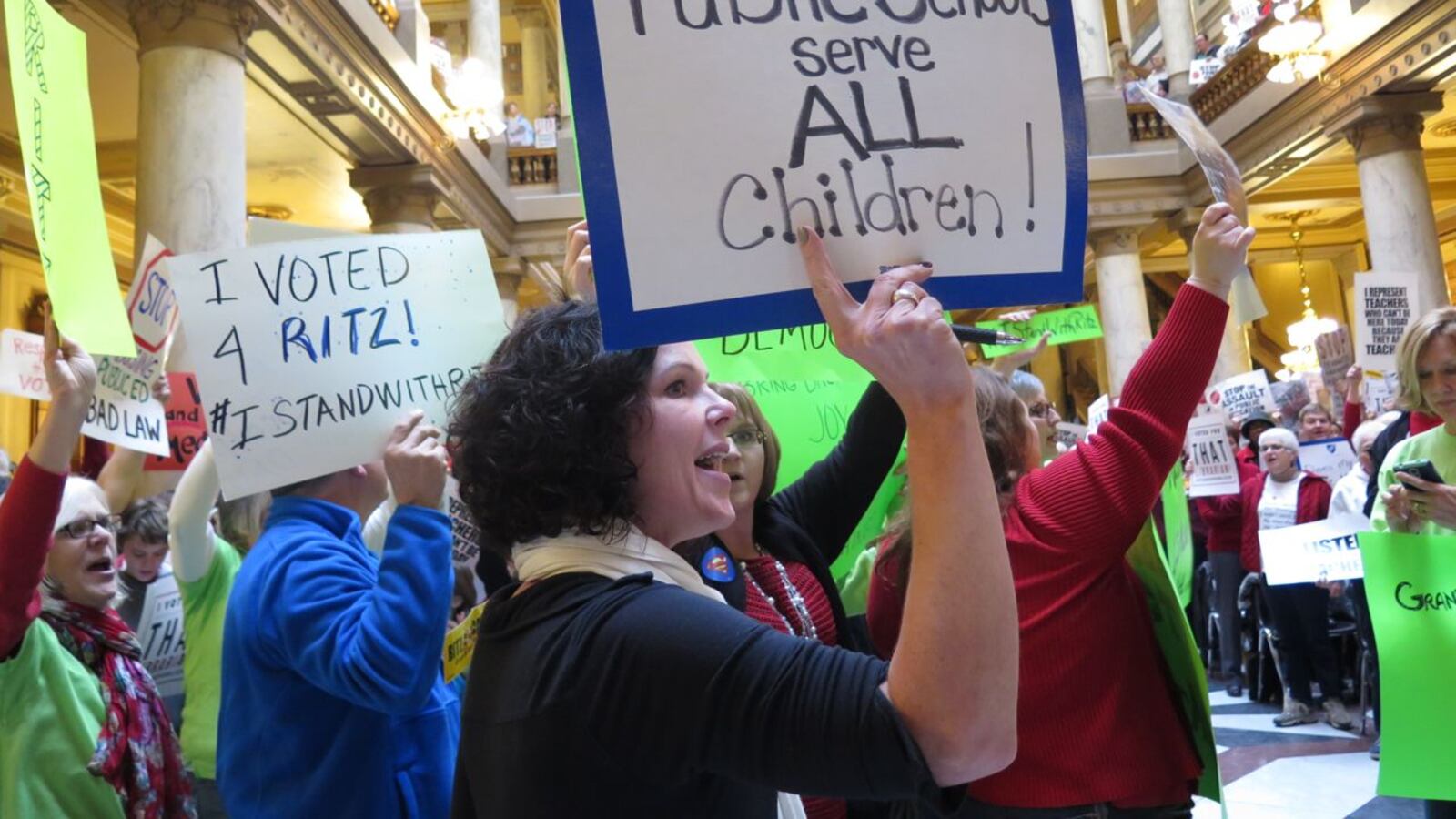A bill that would create a path for teachers to try to negotiate extra pay and manage their own pension funds passed the Indiana House today despite passionate opposition from Democrats and others.
House Bill 1004, which is strongly opposed by teachers unions, passed 57-42, one of the closer margins for education bills backed by the Republican leadership this year. It even attracted a number of no votes from Republicans.
Bill author Robert Behning, R-Indianapolis, said the bill would give school districts flexibility to attract good teachers to hard-to-fill jobs such as teaching foreign language and high-level math.
Some superintendents in Indiana had been given flexibility to negotiate where teachers are placed on the pay scale in specific cases, sometimes with permission from their unions, but that practice was ruled illegal by a court in November, Behning said.
The court ruled that decisions about pay can only be made as part of negotiations with unions to set a district’s pay scale.
This bill, which now moves on to the Senate, would allow districts to negotiate directly with teachers that have high-demand expertise without union involvement in those talks.
“It’s important we have the most qualified educator in front of our students,” Behning said. “It’s not OK to put someone in on an emergency license and say, ‘you are a warm body.’”
State Rep. Melanie Wright, D-Yorktown, fought back tears while describing the bill as unneeded and another example of lawmakers failing to support teachers. Wright is a music teacher in Daleville.
“If we make those salaries negotiable and outside collective bargaining, we will have salaries all over the place,” she said. “Our mid-level teachers will look for options to get out. They already are exhausted from all the mandates that have been put on them.”
Another section of the bill would allow school districts the option to offer retirement benefits as a defined contribution plan, which gives the recipient more control over how the money set aside for them is invested, rather than a traditional defined benefit plan, such as a pension.
While workers control investment choices for a contribution plan, they give up guaranteed payouts and take on the risk that they will invest less effectively than the professional investment managers who run large pension funds.
Behning said the bill just allows school districts to choose the plans that work best for them.
“It is a total option,” he said. “It allows for school districts to determine if they want to offer an alternative option to the defined benefit plan for the teachers who work there.”
But Rep, Greg Porter, D-Indianapolis, said the changes in House Bill 1004 add up to less financial security for teachers and risk upending a pay and benefit system that has served them well.
“It’s going to collapse,” he said. “We are continuing to build a house of cards for teachers.”
The Senate will consider the bill beginning next week.

